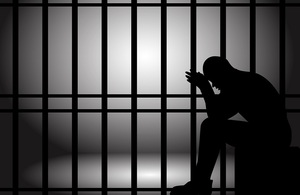Nicholas Bidar, a prisoner serving an indefinite IPP sentence (imprisonment for public protection) has made a public bid for parole. In his plea for parole, Bidar told the parole board ‘I’m not that person’ anymore, and ‘Every day feels like torture. I struggle daily to get through the day.’
IPP sentences, which were abolished 2012, could be indefinite and thousands of those convicted under them are still serving time with no release date. Bidar was given a minimum of eight years imprisonment at 20 years old for robberies and resisting arrest. He is now 36 and is still held in a maximum-security prison with no release date, as the decision to abolish the sentence was not retrospective, leaving many IPP prisoners still behind bars.
Bidar argues that he is a ‘political prisoner’, as his planned 2021 move from maximum security to open conditions was blocked by the Secretary of State for Justice, despite approval by the parole board. Bidar previously stated, ‘I’m exhausted by the sentence. Life is passing me by. I did wrong. I’ve spent a long time doing courses and those who assess me have consistently said I’ve completed my sentence plan.’
Bidar chose to have his parole hearing held in public to raise awareness of his position as an IPP prisoner. This follows new laws around transparency in parole decisions. Bidar told the parole board: ‘I look back at it now as if it wasn’t even me. It’s as if I’m in jail for someone else’s crimes. I’m not that person anymore.’
Mental health, human rights and criminal justice experts have created a coalition to appeal to Parliament to end IPP sentences through the Victims and Prisoners Bill. At least 80 IPP prisoners have taken their own lives, and 800 current IPP prisoners have served more than 10 years on top of their minimum tariff.
‘We have reduced the number of unreleased IPP prisoners by three-quarters since we scrapped the sentence in 2012,’ a Ministry of Justice representative said this month. ‘We have also taken decisive action to curtail licence periods and continue to help those still in custody to progress towards release by improving access to rehabilitation programmes and mental health support.’






